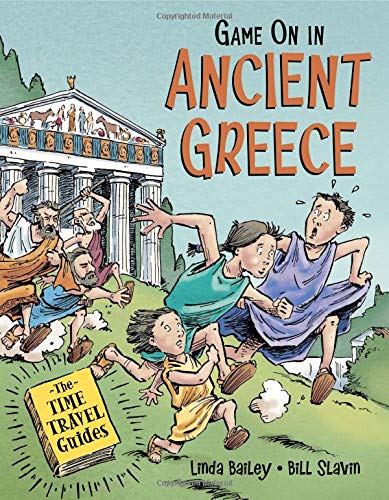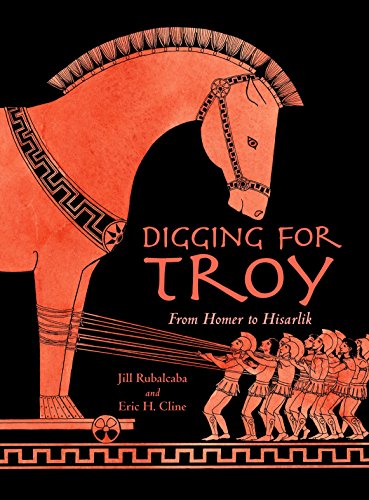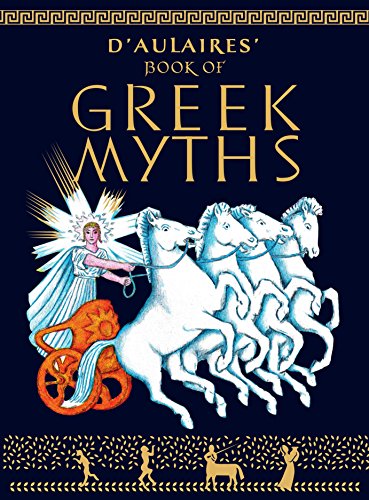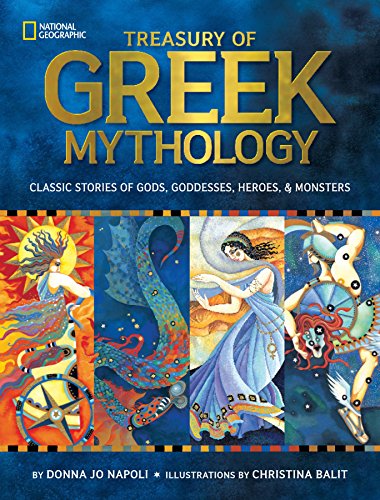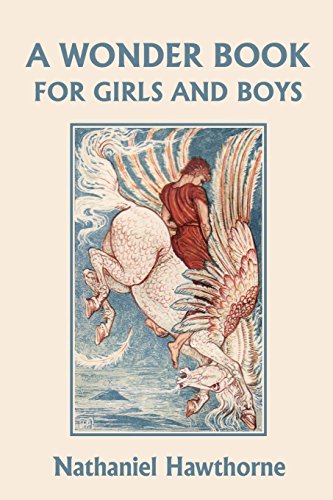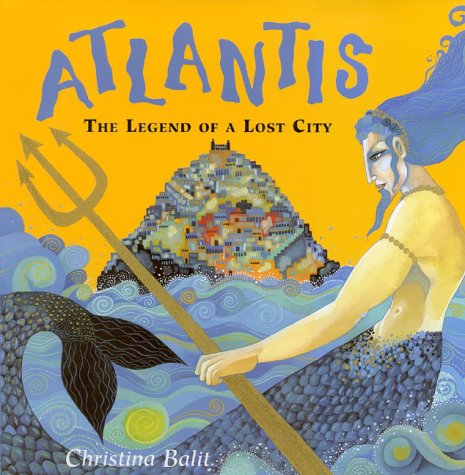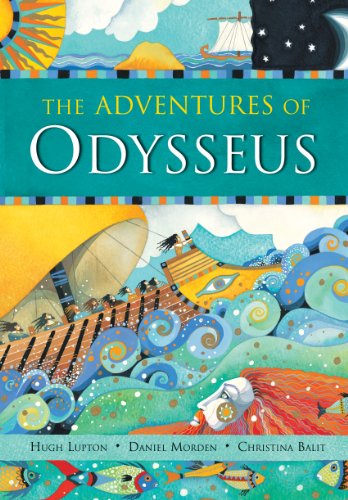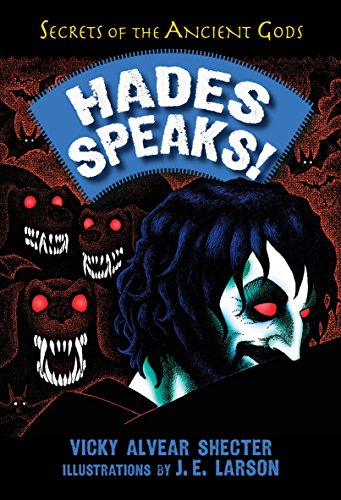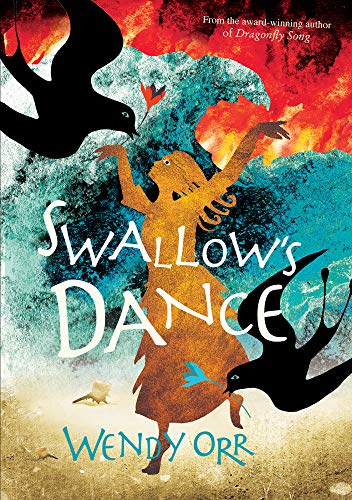On this page: General Resources | Greco-Persian Wars | Olympics | Troy | Alexander the Great | Myths & Legends | Historical Fiction
general resources
📖 The Ancient Greek World by Jennifer Roberts and Tracy Barrett. This book in the World in Ancient Times series gives a fantastic in-depth overview of Ancient Greece. In 26 short chapters, we learn about the philosophy, religion, politics, warfare, arts, and daily life of the Ancient Greeks. Includes quotes from historical figures, etymology of words of Greek origin, and extensive suggestions for further reading. Highly recommended as a spine for a middle grade study of this time period. – Middle
📖 The Groovy Greeks by Terry Deary. This Horrible Histories title provides a humorous introduction to aspects of Ancient Greek life that you may not encounter elsewhere: “All the most horrible facts about the Groovy Greeks ready for readers to uncover, including why girls ran about naked pretending to be bears, who had the world's first flushing toilet and why dedicated doctors tasted their patients' ear wax.” – Elementary • Middle
▶️ Horrible Histories TV show. Episodes of the popular “Horrible Histories” sketch show are available to stream on Amazon Prime, Hulu, and YouTube. Search the Horrible Histories Sketch List to find every “Groovy Greeks” sketch from Seasons 1–5. – Elementary • Middle
📖 The Parthenon by Elizabeth Mann. Geared toward slightly older students, this nicely illustrated non-fiction book provides plenty of information - not just about the Parthenon, but about Ancient Athens in general. – Middle
📖 Famous Men of Greece by John H. Haaren. Learn Ancient Greek history and mythology through a series of biographies of famous Greeks, both real (Pericles, Aristotle, Alexander the Great) and mythical (Hercules, Jason, Odysseus). The book, first published in 1904, is now in the public domain and can purchased on Amazon or read freely online: archive.org. Or you may opt for Greenleaf Press's adaptation (linked image), which simplifies the text a little and includes extra material for Christian parents. – Middle • High
📖 You Wouldn’t Want to Be a Greek Athlete! Races You’d Rather Not Run by Michael Ford and David Antram. This entry in the You Wouldn’t Want to Series invites you to imagine you are a young boy living growing up near Ancient Athens whose father sends you away to school to learn about arts and athletics. Also see You Wouldn’t Want to Be a Slave in Ancient Greece. – Elementary • Middle
📖 Ancient Greece: Everyday Life in the Birthplace of Western Civilization by Robert Garland. "Ancient Greece comes alive in this vibrant portrait of the daily lives of ordinary people—men and women, children and the elderly, slaves and foreigners, rich and poor." This title in the Everday Life series covers the history and culture of the Ancient Greeks in some detail. At 300+ pages, this is a good resource for a student who is interested in delving deeply into the subject. Some mature topics are discussed. – High
🖐️ Classical Kids: An Activity Guide to Life in Ancient Greece and Rome by Laurie Carlson. Here’s a book packed full of project ideas to complement an elementary study of Ancient Greece or Rome. Units include Eating Greek, The Arts, Roman Army, and Dress Up Roman. – Elementary
▶️ NEW • The race to decode a mysterious language from TED-Ed. “In the early 1900s, archaeologist Sir Arthur Evans uncovered nearly 3,000 tablets inscribed with strange symbols. He thought the script, dubbed Linear B, represented the Minoan language, while others came up with their own theories. Was it the lost language of the Etruscans? Or an early form of Basque?” – Middle • High
▶️ NEW • A day in the life of an ancient Greek architect from TED-Ed. “The year is 432 BCE. As dawn breaks over Athens, Pheidias is late for work. He is the chief builder for the Parthenon— Athens’ newest and largest temple— and when he arrives onsite, city officials accuse him of embezzling gold from the temple’s sacred central statue. He has until sundown to prove his innocence or face the courts.” – All
▶️ What did democracy really mean in Athens? from TED-Ed. "While we might consider elections to be the cornerstone of democracy, the Athenians who coined the term actually employed a lottery system to choose most of their politicians." – All
▶️ A day in the life of an ancient Athenian from TED-Ed. “It’s 427 BCE and the worst internal conflict ever to occur in the ancient Greek world is in its fourth year. Athens is facing a big decision: what to do with the people of Mytilene, a city on the island of Lesbos where a revolt against Athenian rule has just been put down. How did these kinds of decisions get made? Robert Garland outlines a day in the life of Athenian democracy.” – All
▶️ This is Sparta: Fierce warriors of the ancient world from TED-Ed. “In ancient Greece, violent internal conflict between border neighbors and war with foreign invaders was a way of life, and Greeks were considered premier warriors. Sparta, specifically, had an army of the most feared warriors in the ancient world. What were they doing to produce such fierce soldiers?” – All
greco-persian wars
📖 The Lion in the Gateway by Mary Renault. This book, subtitled “The Heroic Battles of the Greeks and Persians at Marathon, Salamis, and Thermopylae,” is a good option for older students who are interested in learning about the historic battles between the Greeks and Persians. – Middle
▶️ The Persians and Greeks from Crash Course. “In which John compares and contrasts Greek civilization and the Persian Empire. Of course we're glad that Greek civilization spawned modern western civilization, right? Maybe not. From Socrates and Plato to Darius and Xerxes, John explains two of the great powers of the ancient world.” – Middle • High
olympics
📖 Game On in Ancient Greece by Linda Bailey. “Josh, Emma and Libby Binkerton return to the Good Times Travel Agency—but this time, with a plan to travel to the future, to the next Olympic Games. What could go wrong? Well, plenty! Like when the owner of the shop misunderstands and sends the children to the ancient Olympic Games instead—in fifth-century BCE Greece!” – Elementary • Middle
▶️ The ancient origins of the Olympics from TED-Ed. “Thousands of years in the making, the Olympics began as part of a religious festival honoring the Greek god Zeus in the rural Greek town of Olympia. But how did it become the greatest show of sporting excellence on earth?” – All
troy
📖 Trojan Horse: How the Greeks Won the War by Emily Little. This Step into Reading book gives a fine retelling of the Trojan War for newly independent readers. – Elementary
📖 Digging for Troy: From Homer to Hisarlik by Jill Rubalcaba and Eric Cline. In this non-fiction book, Rubalcaba and Cline first relay the story of the Trojan War from Homer's Iliad then summarize modern-day efforts to locate the ruins of ancient Troy. The book recounts the controversial 19th century excavations of Heinrich Schliemann and discusses ongoing debates regarding interpretation of archaeological evidence uncovered at Hisarlik. It's fascinating reading. – Middle
📖 Inside the Walls of Troy: A Novel of the Women Who Lived the Trojan War by Clemence McLaren. In this ALA Best Book award winner, McLaren offers a fresh take on the story of the Trojan War, by focusing on the perspectives of Helen, the great beauty whose face was said to have launched a thousand ships, and Cassandra, who was cursed with the gift of foresight. –Middle • High
▶️ Did ancient Troy really exist? from TED-Ed. “When Homer’s Iliad was first written down in the eighth century BCE, the story of the Trojan war was already an old one. From existing oral tradition, audiences knew the tales of the long siege, the duels outside the city walls, and the trick that finally won the war. In the end, the city was burned to the ground, never to rise again. But had it ever existed?” – All
alexander the great
📖 Alexander the Great by Demi. Written and illustrated in trademark Demi style, this picture book biography is a nice introduction to Alexander the Great. – Elementary
📖 You Wouldn’t Want to Be in Alexander the Great’s Army!: Miles You’d Rather Not March by Jacqueline Morley and David Antram. This You Wouldn’t Want to… title takes the reader into the service of Alexander the Great. With vicious battles, miles of marching, and endless treks through the desert, this humorous book highlights the hardships of those who served in Alexander’s army. – Elementary • Middle
📖 Alexander the Great: Master of the Ancient World by Doug Wilhelm. From the publishers of the "Wicked History" series, here's a great little chapter book biography of Alexander the Great. Includes lots of biographical detail, along with a map, a "wicked web" of Alexander's friends, family, and enemies, a timeline, and an endnote that examines Alexander's life in the balance. – Middle
🔗 Content Connection: Ancient Egypt. Learn about the city of Alexandria and the Ptolemaic rule in Ancient Egypt.
▶️ Alexander the Great from Crash Course. “In which you are introduced to the life and accomplishments of Alexander the Great, his empire, his horse Bucephalus, the empires that came after him, and the idea of Greatness. Is greatness a question of accomplishment, of impact, or are people great because the rest of us decide they're great?” – Middle • High
myths & legends
📖 D’Aulaires’ Book of Greek Myths by Ingri and Edgar Parin d’Aulaire. Featuring all of the major Greek gods and goddesses, this classic collection of myths should be included in any study of Ancient Greece. Highly recommended. – Elementary
📖 Treasury of Greek Mythology: Classic Stories of Gods, Goddesses, Heroes and Monsters by Donna Jo Napoli. With beautiful artwork and poetic text, Napoli’s recently published Treasury is a good alternative to d’Aulaires’ Book of Greek Myths; written at a slightly higher level. – Elementary • Middle
📖 A Wonder Book for Boys and Girls by Nathaniel Hawthorne. In Hawthorne’s framed story, Eustace Bright, home from college, entertains the younger kids with creative retellings of the Greek and Roman myths. Stories include Medusa, King Midas, Pandora, and Hercules. Also see Hawthorne's sequel, Tanglewood Tales. – All
📖 Atlantis: The Legend of a Lost City by Christina Balit. Balit's gloriously illustrated retelling of the Legend of Atlantis is out of print, but well worth finding. A brief endnote addresses some theories on the existence and location of the lost city. – Preschool • Elementary
📖 Adventures of Odysseus by Hugh Lupton. There are many children's adaptations of the Odyssey in print. This re-telling by Hugh Lupton is particularly well written and nicely illustrated. The content is appropriate for a younger audience. – Elementary
📖 Black Ships Before Troy and The Wanderings of Odysseus by Rosemary Sutcliff. Here are two very good, well-illustrated classic retellings of the Iliad and the Odyssey for older students. The back of each book contains handy pronunciation guides and maps showing the route traveled by Odysseus. – Middle • High
📖 Hades Speaks by Vicky Alvear Schecter. Learn Greek mythology from the God of the Dead in this funny chapter book. Hades makes an entertaining, self-deprecating narrator; kids who appreciate snarky humor of the Rick Riordan variety should also enjoy this book in the Secrets of the Ancient Gods series. – Middle
📖 Tales of the Greek Heroes by Roger Lancelyn Green. This classic from renowned storyteller Roger Lancelyn Green introduces the heroes of Ancient Greece, from Hercules to Jason. In the Author's Note, Green explains how this book is different from other adaptations. While most children's collections of Greek myths are composed of isolated stories, Green has set out to "tell the tale of the Heroic Age as that single whole which the Greeks believed it to be." – Middle
📖 The Golden Fleece by Padraic Colum. Padraic Colum's Newbery Honor Book tells the epic story of Jason and his Argonauts. At over 300 pages, this challenging, lyrically written book could be used as a read-aloud for upper elementary or an independent read for older students. – Middle • High
🔗 Content Connection: Universe. Learn about the constellations and their connection to Greek mythology.
▶️ The science behind the myth: Homer's "Odyssey" from TED-Ed. "Homer’s "Odyssey" recounts the adventures of the Greek hero Odysseus during his journey home from the Trojan War. Though some parts may be based on real events, the encounters with monsters, giants and magicians are considered to be complete fiction. But might there be more to these myths than meets the eye?" – All
▶️ The myth of Jason and the Argonauts from TED-Ed. “Hercules, the strongest man alive with a mighty heart to match. Orpheus, charmer of nature and master of music. Castor and Pollux, the twin tricksters. The Boreads, sons of the North Wind who could hurtle through the air. Brought together by a young man’s call for help, these heroes joined forces and named themselves the Argonauts. Iseult Gillespie traces their quest to steal the Golden Fleece.” – All
▶️ The scientific origins of the Minotaur from TED-Ed. "The myth of the Minotaur tells the story of an enraged beast forever wandering the corridors of a damp labyrinth, filled with a rage so intense that its deafening roar shakes the earth. But is this story just fiction, or an attempt of our early ancestors to make sense of the natural world?" – All
▶️ The myth of Pandora’s box from TED-Ed. “Pandora was the first mortal woman, breathed into being by Hephaestus, god of fire. The gods gave her gifts of language, craftsmanship and emotion. From Zeus she received two gifts: the trait of curiosity and a heavy box screwed tightly shut—never to be opened. But what treasure could never be seen by human eyes, and why was it in her care?” – All
▶️ The myth of Sisyphus from TED-Ed. “Sisyphus was both a clever ruler who made his city prosperous, and a devious tyrant who seduced his niece and killed visitors to show off his power. While his violation of the sacred hospitality tradition greatly angered the gods, it was Sisyphus’ reckless confidence that proved to be his downfall—resulting in Zeus condemning him for all eternity.” – All
▶️ The myth of King Midas and his golden touch from TED-Ed. “In Greek mythology, King Midas is known as a rogue ruler whose antics bemused his people and irritated the Gods. Many know the classic story of Midas's golden touch, but the foolish king was also known for his unusual pair of ears. Iseult Gillespie shares the myth of King Midas.” – All
▶️ The myth of Arachne from TED-Ed. “From sailors who were turned into pigs, nymphs that sprouted into trees, and a gaze that converted the beholder to stone, Greek mythology brims with shape-shifters. The powerful Gods usually changed their own forms at will - but for mortals, the mutations were often unwanted. Iseult Gillespie shares how one such unnerving transformation befell the spinner Arachne.” – All
▶️ The tragic myth of Orpheus and Eurydice from TED-Ed. “The marriage of Orpheus, the greatest of all poets and musicians, to Eurydice, a wood nymph, was heralded as the perfect union. Anyone could tell the couple was deeply in love. So when their wedding ceremony ended in Eurydice's untimely death, Orpheus had no choice but to venture into the underworld to try to reclaim his lost love.” – All
▶️ The myth of Prometheus from TED-Ed. “Before the creation of humanity, the Greek gods won a great battle against a race of giants called the Titans. Most Titans were destroyed or driven to the eternal hell of Tartarus. But the Titan Prometheus, whose name means foresight, persuaded his brother Epimetheus to fight with him on the side of the Gods. Iseult Gillespie shares the myth of Prometheus.” – All
▶️ The myth of Icarus and Daedalus from TED-Ed. “In mythological ancient Greece, Icarus flew above Crete on wings made from wax and feathers, defying the laws of man and nature. To witnesses on the ground, he looked like a god, and he felt like one too. But, in his society, the line that separated god from man was absolute, and the punishment for mortals who attempted to cross it was severe.” – All
▶️ The Greek myth of Talos, the first robot from TED-Ed. “Hephaestus, god of technology, was hard at work on his most ingenious invention yet. He was creating a new defense system for King Minos, who wanted fewer intruders on his island kingdom of Crete. But mortal guards and ordinary weapons wouldn’t suffice, so the visionary god devised an indomitable new defender. Adrienna Mayor dives into the myth of Talos: the first robot.” – All
▶️ Ancient Greek Mythology from Crash Course. In Pantheons Part 3, “Mike digs deep into the gods of the ancient Greeks. We're talking Zeus, Hera, Poseidon, Hades, Artemis, Hephaestos, Ares, and Apollo.” In Hermes and Loki, Mike discusses “tricksters as culture heroes. Basically, a culture hero is someone whose creativity adds to their mythological culture. We'll learn how the shennanigans of Hermes are credited with deeply influencing Greek culture and myth.” Finally, Mike discusses Heracles, the strong man of Ancient Greece. “…learn about Herakles' 10 actually 12 labors, the story of his birth, his death, some of his marriages, none of which turned out that great, and some of his character flaws that definitely wouldn't fly in the modern world.” – All
historical fiction
📖 Swallow’s Dance by Wendy Orr. Here is a good literature link to accompany an upper Elementary or Middle School study of Minoan Greece: “In the myth-rich culture of Bronze Age Crete, a volcano cuts short the coming-of-age training of a young priestess. When her world is shattered and her future appears lost, she must find the strength within herself to ensure the survival of her family.” –Middle











